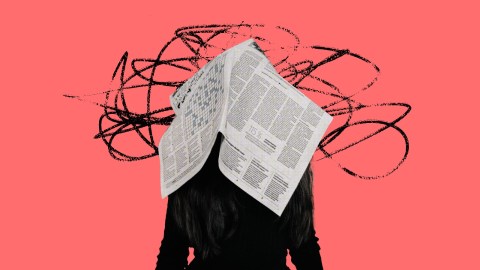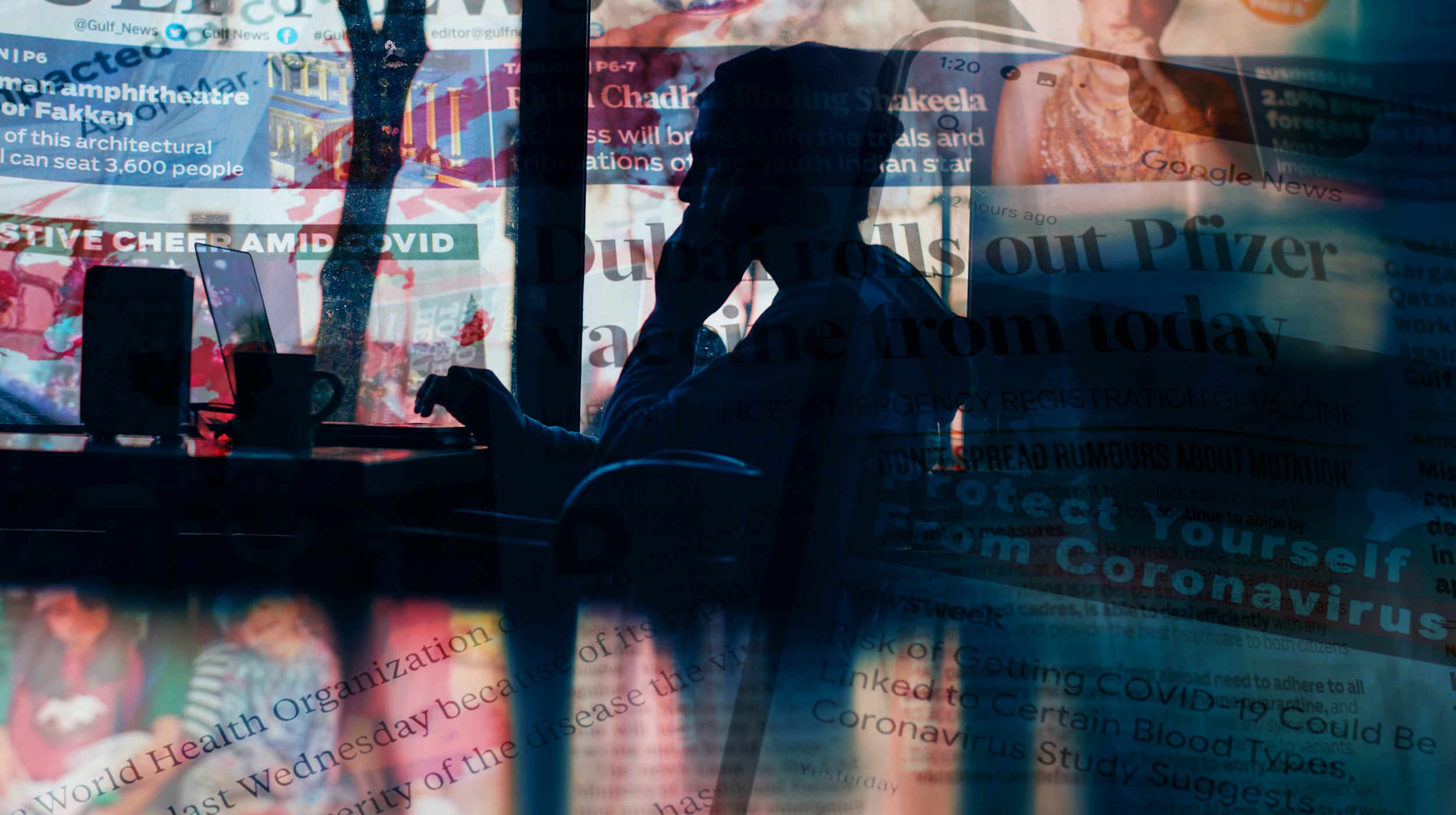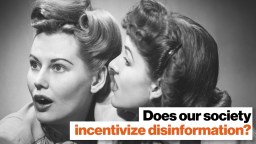Misinformation abounds because “trusted” sources promote untrustworthy information

- We are warned by scientists and the media to avoid misinformation. Yet, some of the purveyors of that misinformation are scientists and the media.
- It is well-known within academia that “there is no [study] that is so dreadful that it cannot be published somewhere.” A recent one claiming that vitamin B6 can treat depression serves as a case in point.
- As a society, we either hold everybody to the same epistemic standard of scientific accuracy, or we accept that “trusted sources” themselves can peddle misinformation and continue to get away with (and profit from) it.
The world has a misinformation problem. “Inaccurate information spreads widely and at speed,” the World Health Organization warns, “making it more difficult for the public to identify verified facts and advice from trusted sources.”
But the problem isn’t just a dozen anti-vaccine activists who spread nonsense on social media or environmental activists who gin up popular opposition to GMOs and low-risk pesticides. To be sure, these fringe voices do confuse consumers and undermine scientific thinking, though they’re not the only culprits.
Terrible studies are routinely published
The uncomfortable truth is that academic scientists routinely publish questionable research that attracts widespread media attention, adding to the morass of “inaccurate information” circulating online. If we want to get this problem under control, we need our trusted sources to quit releasing untrustworthy information.
Every scientist knows that peer-reviewed journals are chock-full of low-quality studies. As one cancer researcher put it:
“[T]he public and journalists — the consumers of information about health — need to be aware of something that researchers know well — there is no [study] that is so dreadful that it cannot be published somewhere.”
Much of this research amounts to little; it is never cited or even read by other scientists. However, some of this work, despite its deficiencies, generates inordinate amounts of interest from reporters and the public.
Media frenzy: Vitamin B6 treats depression
Consider this recent study, widely covered by the media, which suggested that high-dose vitamin B6 supplements may reduce the symptoms of anxiety and depression. The study was a clinical trial, meaning the researchers actually performed an experiment on people rather than just observing correlations. It nonetheless had some important limitations:
- The researchers didn’t measure serum levels of the vitamin in any of the participants, before or after the study. They had to assume everyone took their assigned supplements (B6, B12, or a placebo) in the prescribed doses — a questionable assumption since study participants often misreport their behavior.
- Participants self-reported depression and anxiety symptoms using questionnaires. Again, this is concerning because people also frequently misreport health status information.
- The results weren’t statistically significant for depression; the researchers “found only a trend towards an effect” on self-reported depression symptoms. The effect on anxiety, while statistically significant, was “quite small” compared to medication.
As is typical, few of these important limitations came through in press coverage of the study. While several outlets briefly mentioned that the results were preliminary, their headlines weren’t so circumspect. “High doses of vitamin B6 help to reduce anxiety and depression, new research shows,” the Independent reported. “This vitamin supplement could reduce depression, anxiety,” The Hill told its readers. “Vitamin levels in Marmite can calm anxiety, new study finds,” yet another Independent story claimed.
This is hardly an explosive debunking of the study. The authors plainly outlined the limitations in their “discussion” section. Still, the paper raises some concerns about misinformation in credible, mainstream sources.
Reality: Vitamins are mostly useless
First, are the potential benefits of vitamin supplementation still an open question? No, not really. Just last month the U.S. Preventive Services Task Force (USPSTF), a panel of independent experts on preventive health issues, concluded that there was insufficient evidence to recommend vitamin supplementation to the majority of Americans, particularly to reduce the risk of cancer and cardiovascular disease.
The author of an editorial accompanying the report put it more bluntly: “Vitamins and minerals are a distraction, and offer minimal to no benefit for healthy American adults.” Studies going back many years have reached the same conclusion. It seems like supplementation does very little for most of us, so why are we reading fresh headlines about the possible anti-depressant effects of vitamin supplements?
Second, the study authors acknowledged that a 100-mg vitamin B6 supplement (which is much higher than the daily recommended dose) wouldn’t displace cognitive behavioral therapy or existing anxiety and depression medications, all of which are quite effective in many cases. Taking a vitamin supplement would have a relatively insignificant effect by comparison — assuming it has any effect at all. In any case, you’re better off getting B vitamins from nutritious foods, according to the Mayo Clinic. Pour yourself an extra glass of milk and save the money you would have spent on vitamins.
Why misinformation is everywhere
It is true that researchers live and die by their grants; they either “publish or perish,” as the old saying goes. Often, that means academic scientists propose studies that have the best chance of being funded by risk-averse government agencies, not the best study to address the question they want to answer. While this helps explain why academics are incentivized to pursue the research they do, it also implicates funding institutions and universities (and the media), which gain from exaggerating the results of low-risk, low-grade studies. Misaligned incentives constitute a systemic problem.
As a result, misinformation is everywhere, and unfortunately it often comes from the very sources that we are told we must trust — reporters, fact-checkers and, yes, even scientists. As a society, we either hold everybody to the same epistemic standard of scientific accuracy, or we accept that “trusted sources” themselves can peddle misinformation and continue to get away with (and profit from) it.





